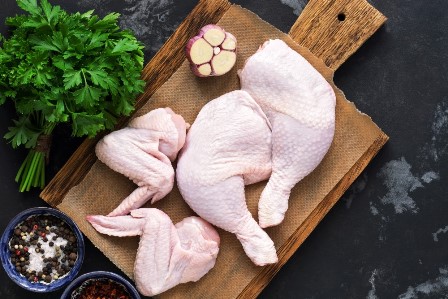
Poultry sector and consumer watchdog dismayed at plans for inquiry
By: Edward West - Business Report
Fallout from the Competition Commission’s decision to probe allegations of anti-competitive practices in the poultry sector continued to pour in, with, for instance, the South African Poultry Association (Sapa) yesterday (12/02/2024) expressing its concern and surprise at the move.
Sapa said it would co-operate with the envisaged Poultry Market Inquiry, even though it was “surprised that the inquiry is considered necessary,” and was “concerned at some of the statements and assumptions” in the Commission’s announcement.
“Central to the inquiry will be the issue of the concentration of large companies in both the broiler and egg industries. There seems to be an underlying suspicion this is bad for the industry and for consumers. We will provide the inquiry with our views on these matter,” Sapa said.
It said, however, the industry was “extremely concerned” about the Commission’s statement that there were “ongoing demands for bailouts through ever-increasing tariffs and the imposition of anti-dumping duties”.
Meanwhile, FairPlay Movement founder Francois Baird said neither the recent frozen chicken import tariff rebates nor the poultry market inquiry was warranted and both placed additional burdens on an industry that had just come through the worst year in its history.
Companies had recorded massive losses due to high input costs, and have had to spend billions to address the problems caused by load shedding, poor water supplies and transport infrastructure failures. In addition, the government had ordered mass culling to curb bird flu outbreaks, but refused to compensate farmers as other countries did, said Baird.
“The poultry market inquiry risks doing additional damage to a well-run and competitive industry that is trying to recover, with no government help, from a year when it made no profits,” said Baird.
He said chicken prices did not rise because of bird flu. Rapid action by the poultry industry, including importing some 150 million hatching eggs, ensured that supply was normal at the end of last year.
“If the government is really concerned about chicken prices, it should remove the 15% value added tax from the chicken portions most bought by poor people. Vat-free chicken would enable an immediate price drop in what is already South Africa’s most affordable meat protein and an essential component of the diets of low-income households,” said Baird.
Sapa said that “as ITAC and the DTIC will know well, the poultry industry has never in its history asked for bailouts. The use of this term indicates a hostility that we find disturbing.”
“What the industry has asked for is protection against unfair and dumped imports. ITAC investigations have repeatedly found that these imports are harming the industry and costing local jobs,“ the association said.
The industry’s biggest competitor is imports, and South African poultry producers compete with companies in the US that slaughter more than 45 million birds per week, compared with the 21.5 million per week produced in South Africa.
“The 2019 Poultry Master Plan committed the government to helping to curb imports, to act decisively against illegal and dumped chicken imports and to promote local industry growth and job creation,” Sapa said.
The inquiry also questioned the competitiveness of the South African poultry industry.
“Our producers are among the most competitive in the world – year after year, research by Wageningen University in the Netherlands has found that our producers are among the most competitive in the world, producing a chicken cheaper than all EU countries, similar to the US and outperformed only by Brazil,” Sapa said.
Recent factors that had added to the cost of production had been the rapid rise of feed costs following Russia’s invasion of Ukraine, and local factors such as the billions that producers had to spend to counter the government’s failings to produce reliable electricity and water supplies, and the state of the roads and railways.
“The result has been that the industry made no profits last year, and top companies recorded substantial losses. Additional stress on profitability is likely to be done by the government’s introduction of rebates on poultry import tariffs. This will bring in unneeded additional imports when the local chicken market is in oversupply,” Sapa said.

